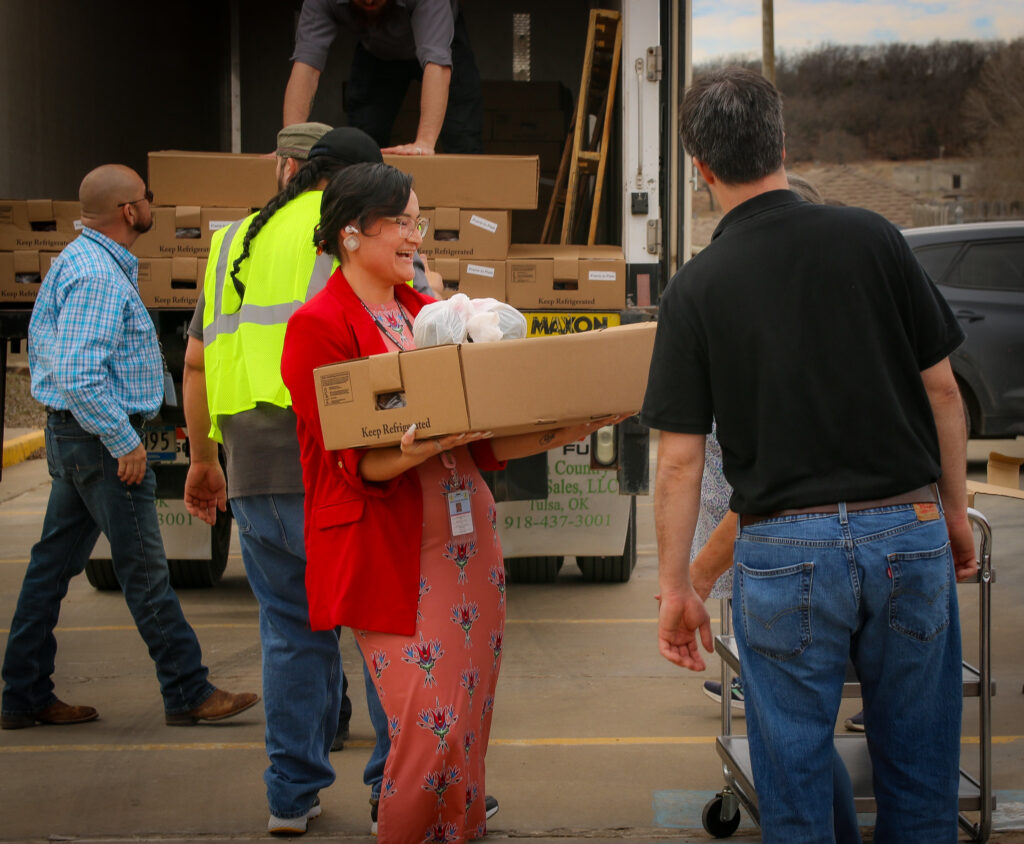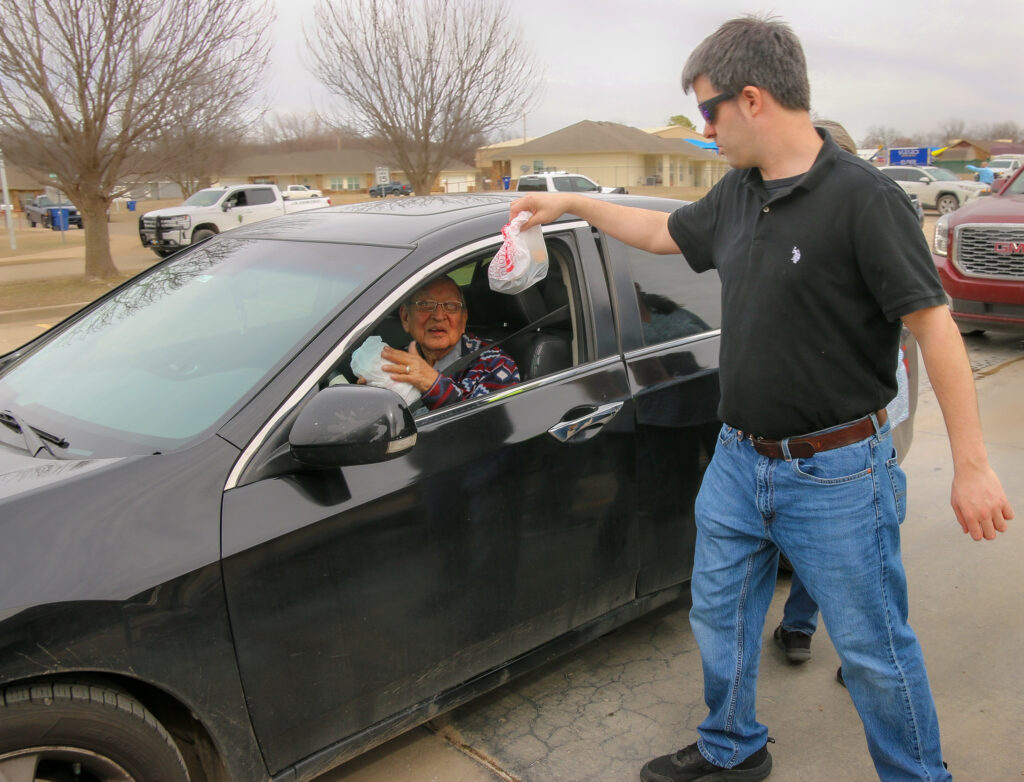The cost of meat is currently high in Osage County, averaging $8 a pound at Harps Food in Pawhuska. That’s one reason Amy Dobbins of Title VI – a program which provides low-cost lunches to Native American elders – took on the somewhat unrelated task of getting local food boxes into the Osage community (and that doesn’t mean just for Native elders).
“As gut-wrenching as it is for me to think about an elder going hungry, it’s equally uncomfortable to me to think about a Native American child going hungry,” said Dobbins, who is of Hominy District and has worked for the Nation for 16 years. Hers was the last department in the Nation to be asked to take on Project Prairie to Plate. She said yes because she knew that Osage employees are in need, and that elders would make good use of the boxes, too.
Employees of the Nation and the health system often “have three and four children on up,” Dobbins continued. “If you look at the price in the grocery store, that’s got to be hard to feed, so every month it has been a challenge.”



As a result, demand for the Project Prairie to Plate program has been high, and Dobbins and her team have had to come up with a fair way to make sure everyone gets their turn. Their solution is going to be a rotation, in which no one can receive back-to-back monthly boxes. For elders, they will be able to receive a box every other month; and for employees, they won’t come in person to sign-up, but will receive notification from their director when Dobbins’ office contacts them with tickets for the big meat boxes.
And the boxes are big. Participating families have noted to Dobbins that they sometimes share the meat with others in their extended families. On the upcoming third distribution of boxes, which will be this Thursday, April 25, Dobbins is expecting a smooth setup. In the past, there have been lines and folks turned away. By now, she hopes that most know that those there on the 25th must present a ticket they picked up prior on the 17th, in order to collect their box.
“I know where my heart is, I would never look to treat anyone bad, especially my tribal members,” Dobbins said, of her efforts to run an additional program through Title VI with no additional administrative hours, support or funding. “I am trying to be as fair as I can.” But it’s all worth it, she said, because families come and tell her that the meat helped them get through. “Someone was having to feed their family hot dogs every day for two weeks,” she said. “Traditionally, in Indian Country, if a family member is struggling we have another family member step in to help them,” she said. And Title VI has been able to carry on that tradition.
In total, Dobbins has enough federal funds to make 200 food boxes a month, with 100 dedicated for elders, and 100 for both Osage Nation and health system employees. Although the boxes serve elders, their boxes are not created with elder funds, but with the same USDA dollars for the employee boxes. Sometimes, however, the fact that Title VI is administering the boxes is enough to cause confusion about whose funds the boxes are utilizing. Elders have gotten upset when they see people younger than them getting the boxes, Dobbins explained.



But Dobbins isn’t discouraged. Instead, she’s determined, and has worked through regulations demanding that all food inside are grown or raised and produced within 400 miles of the reservation, and also, that they are minimally processed. “That means no bread, no cookies,” said Dobbins. “We took $881,000 [in USDA funds] and put the majority of that back into Osage Nation entities,” said Dobbins. Rightly, she seems proud. “I’m trying to make a difference. I want to serve my people. … I am trying, I want to at least try to make a difference, so that’s what keeps you going when there’s a lot of negativity.”
Upcoming plans for the boxes include adding three more vendors, and Dobbins is currently looking at local honey “and how it helps people with allergies. I’m very interested in that.” She tried incorporating coffee companies, but the USDA said “no,” because all food that is in the box must be grown within 400 miles of the distribution area, and beans being processed in that vicinity does not qualify.
In the past, the boxes have included canned goods from Harvest Land, such as ketchup, marinara sauce, jellies, micro greens, fresh eggs, and more. “Harvest Land is contributing what they can,” commented Dobbins, who said she did not want to monopolize the farm’s production, especially as they are still growing.
While the hyper-local movement doesn’t necessarily harmonize with traditional senses of healthy, which integrated trade networks alike to the way Tocabe prioritizes “Indigenous first, local second” in food sourcing, the grant is not focused on health, but rather on supporting regional vendors. Fortunately, that means Butcher House Meats and Harvest Land.



